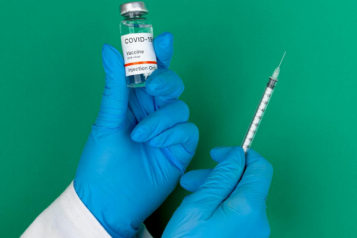Living with Covid
The Prime Minister’s announcement on 21 Feb 2022 set out how we will live safely with COVID-19. With the Government’s plan for removing the remaining legal restrictions, the focus is to protect the most vulnerable to COVID-19 and maintain resilience.

Living with COVID-19: Local Briefing - 30 March 2022
Overview
- The Prime Minister’s announcement on 21 February 2022 set out how we will live safely with COVID-19. With the Government’s plan for removing the remaining legal restrictions, the focus is to protect people most vulnerable to COVID-19 and maintaining resilience. The 'Living with COVID-19' publication can be read here and sets out the following objectives:
- Living with COVID-19 – moving to managing COVID-19 through advice and guidance, enabling people to make choices and assess individual risk.
- Protect those at high risk from COVID-19 – focus on protecting people and settings at high risk from COVID-19, ensuring we are able to control outbreaks in vulnerable settings and supporting delivery of antivirals.
- Resilience and contingency – deliver effective surveillance to monitor the epidemiology and detect/assess new variants, retaining a proportionate test, trace, data, logistics and skills infrastructure to be able to scale up in the event of future COVID-19 wave.
- Following the letter sent by Dame Jenny Harries on 24 February 2022, this document outlines the anticipated working arrangements for UKHSA and local partners in living with COVID-19, and what this means for local COVID-19 outbreak management. This note covers the following points:
- Joint national and local system priorities for local outbreak management.
- Updated position on testing.
- Updates to guidance and when this will be available.
- UKHSA and Local Authority (LA) roles and responsibilities.
- Contingency plans for a new variant.
Local Outbreak Management
- The Living with COVID-19 publication set out that the local response should now become more aligned with wider local health protection arrangements, bringing the lessons learnt from the pandemic to further develop the health protection system. The objective in this phase of the response is to enable the country to manage COVID-19 like other respiratory illnesses, while minimising harm and retaining the ability to respond if a new variant emerges with more dangerous properties than the current dominant Omicron variant.
- UKHSA recognises that local COVID-19 outbreak management will need to adjust to responding to COVID-19 as part of wider infectious disease functions. Given the wider strategic direction, outbreak management will need to focus on protecting those at highest risk from COVID-19. From 1 April, the joint priorities for the national and local system relating to outbreak management will be:
- To continue COVID-19 outbreak management in high-risk settings to reduce the risk to vulnerable people within these settings. This will include working proactively with such settings to reduce the risk of importation and spread of COVID-19. Further information on high-risk settings in scope will be provided in due course.
- To support COVID-19 outbreak investigation and management in other settings when needed to protect public health, alongside other respiratory illnesses.
- To support a range of settings to reduce the risk of, and to manage, COVID-19 outbreaks as part of usual practice, now including COVID-19 alongside other respiratory illnesses.
- Community engagement to support public health messaging and behaviour change including working with local partners, employers and with vulnerable people in their community through tailored and targeted communication. This includes continuing to promote positive behaviours that can reduce the transmission of respiratory and other viruses.
Testing
- As set out yesterday, the Government has started the process of reducing its testing and tracing infrastructure, in preparation for the end of free universal testing from 1st April. From this point, the LA role in distributing tests will also end.
- Free symptomatic testing will continue to be provided for:
- Patients in hospital, for whom a test is required for clinical management or to support treatment pathways.
- People who are eligible for COVID-19 treatments because they are at higher risk of getting seriously ill from COVID-19. People in this group will be contacted directly and sent lateral flow tests to keep at home for use if they have symptoms as well as being told how to reorder tests.
- Individuals who live or work in high-risk closed settings, for example, in some NHS, social care and prison (and other Places of Detention) settings where infection needs to be identified quickly to minimise outbreaks.
- During periods of higher prevalence, DHSC will continue to fund some asymptomatic testing in NHS services (including for staff and patients), for staff in Adult Social Care services and hospices, and testing of care home and hospice residents on admission and during an outbreak. In addition, asymptomatic testing will continue to mitigate risk during higher prevalence periods in some closed or semi-closed settings, for example: parts of the Prison estate, Places of Detention, and some refuges and shelters.
Guidance
- As we move towards managing COVID-19 in a similar way to other respiratory infections, the following new guidance is being developed for publication on 1 April 2022 to reflect these changes:
- Living safely with respiratory infections, including COVID-19.
- Guidance for people with symptoms of a respiratory infection including COVID-19, or a positive test result for COVID-19.
- Public health principles for reducing the spread of respiratory infections, including COVID-19, in the workplace.
- There will also be updated setting-specific guidance for Adult Social Care which will include specific outbreak response advice.
- Further detail on these new pieces of guidance and plans for existing guidance that will be updated, consolidated and decommissioned will be provided in a future briefing note for LAs and UKHSA teams in due course.
Roles and responsibilities
The role of UKHSA
- UKHSA will support cross government work on setting the national strategic and policy direction on COVID-19 and publish public health guidance. It will use existing health protection frameworks to deliver this. As part of this approach, UKHSA will continue to focus on protecting the settings at highest risk.
- UKHSA regional teams will continue to:
- lead on management of outbreaks in higher risk settings and complex outbreak investigation and management (as at paragraph 4a);
- provide intelligence and technical advice to LAs, NHS and other local stakeholders on COVID-19 response activities;
- provide guidance in limited circumstances as outlined above, contribute to national surveillance; and
- continue to play a key enabling role in collaborating with partners across Whitehall and connecting the national response and policy making to local response and feedback.
The role of LAs and Directors of Public Health (DsPH)
- LAs have always played a critical role in health protection, emergency response and infectious disease control. From 2021-2022 the Government provided an additional £2.1 billion to LAs in expanding this role to support public health efforts to tackle the COVID-19 pandemic through the Contain Outbreak Management Fund (COMF).
- As we move to living with COVID-19 we expect LAs will return to supporting outbreak management as they did pre-pandemic, now including COVID-19 alongside other respiratory infections. The Government’s strategy means LAs will conduct minimal COVID-19 specific activities going forward, and as such no additional COVID-19 specific funding will be provided.
- Where LAs choose to deliver support, UKHSA recommend they focus on the COVID-19 outbreak management priorities as set out in paragraph 4. In addition, UKHSA encourage continued collaboration between neighbouring LAs and within the local system, to share resources and best practice approaches, to maximise the impact of the activities. DsPH have an existing statutory duty in planning for, and responding to, emergencies that present a risk to the public’s health. As we move into treating COVID-19 in line with other respiratory illnesses, UKHSA expect DsPH will continue to have a vital leadership role in health protection locally and will seek to enable appropriate health protection support.
Contingency plans for a new SARS-CoV-2 variant
- All viruses mutate over time and, since the start of the pandemic, many different SARS-CoV-2 variants have been identified in the UK. The majority of variants emerge and subsequently become extinct as transmission wanes.
- Surveillance will continue to play a critical role in understanding COVID-19 and to inform current and future actions. Surveillance will include: the ONS COVID-19 Infection Survey (CIS), testing by NHS for clinical decision making, test to treat, testing in highest risk settings, genomic sequencing, and local intelligence reporting.
- Local areas will already have contingency plans for maintaining crucial services such as social care and should continue to follow those. As set out above, UKHSA Health Protection Teams (HPTs) will continue with their wider health protection role, including complex or high-risk COVID-19 cases and incidents (such as new variants of concern). UKHSA with partners will develop and share intelligence including on COVID-19. When a new variant is detected, UKHSA will conduct dynamic risk assessments to establish the level of risk and the response required.
- Containing a new SARS-CoV-2 variant at local level has been shown to be very challenging. UKHSA expect any scientific, clinical and broad operational response to a dangerous variant to be coordinated nationally and will draw on national resources and capabilities, but any approach to detection, investigation and control will need to involve local partners. Local intelligence will be critical to allowing UKHSA and wider Government to understand and monitor variants as they emerge.
- UKHSA will work with national and local partners to further develop contingency arrangements in light of the move to living with COVID-19. Further information on the national and local expectations around contingencies will provided in due course.
Next Steps
In moving to an approach more akin to that before the pandemic, UKHSA want to retain the learning and capability that has been accumulated during the COVID-19 response and are working to build this collaboratively with partners into the longer-term evolution of the local health protection system.

